Month: July 2022
New ECOSOC President aims to ease crises which have ‘engulfed our societies’
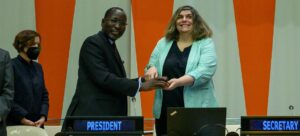
Ambassador Lachezara Stoeva said in her opening statement that she was “honoured and humbled” to have been elected to lead one of the principal organs of the UN, while noting that the upcoming session will be “especially challenging for the world”.
In addition to COVID recovery, she highlighted the ongoing war in Ukraine, which has “triggered massive food insecurity, energy shortages and financial crises”.
The new ECOSOC chief elaborated on initiatives to assist in overcoming “the crises that have engulfed our societies”.
Setting her agenda
As ECOSOC President, Ms. Stoeva’s said her first priority was to ensure that the Council and the High Level Political Forum (HLPF) which is the climax of its work each year, provides “solid, evidence-based, innovative and actionable policy guidance” to curb and address the pandemic’s impacts on the Sustainable Development Goals (SDGs).
Secondly, she aims to help bridge the “great finance divide” that has sharply curtailed the ability of many developing nations to recover.
Her third priority is to ensure preparations advance for the SDG Summit taking place in September 2023, by building momentum and reviving “the passion that characterized the elaboration and implementation of the SDGs”, which were agreed in 2015.
Fourth, she aims to build on the success of this year’s Humanitarian Affairs Segment to “support and reinforce” the UN and its humanitarian partners in addressing “profound humanitarian challenges” worldwide.
Fifth, Ambassador Stoeva aims to follow-up on the recommendations made to ECOSOC in the Secretary-General’s Our Common Agenda blueprint for action, while her sixth priority will be to provide better access to youth, civil society and others.
Her final priority she said, would be to implement the recommendations adopted by the General Assembly in June 2021 for reforming the work of ECOSOC and the HLPF.
Ambassador Stoeva assumed her duties as Bulgaria’s Permanent Representative to the UN in February last year and has served as ECOSOC Vice-President responsible for the Management Segment, where she successfully led the Council’s review of the Functional Commissions and Expert Bodies.
Fond farewell
In a heartfelt speech, outgoing President Collen Kelapile said that he was “deeply honoured and elated” to have served in the top job for the past year.
Reminding that it was the first time that Botswana had occupied the seat, he described it as “a momentous occasion for both my country and I personally”.
Before handing over the reins, Mr. Kelapile looked back at the main theme of both ECOSOC and the HLPF this month, highlighting the “eight broad priorities”, of his term, which included vaccine equity, inequalities, post-conflict recovery, and youth engagement.
He also highlighted the Council’s new Coordination Segment and a revitalized Partnership Forum to guide its subsidiary bodies, reminding that it has dealt with conflict, post-conflict and humanitarian emergencies, including in Haiti, South Sudan, and the Sahel region.
The outgoing President also drew attention to meetings during his tenure surrounding the climate crisis, implementing the New Urban Agenda, and supporting the advance of the SDGs during the recent months of crises on multiple fronts.
“I am pleased that the Council adopted a Resolution last Friday to ensure implementation of the outcomes of the Operational Activities for Development Segment,” he said.
Championing the vulnerable
As President, he reminded that ECOSOC continued to advocate for Least Developed Countries (LDCs), Landlocked Developing Countries (LLDCs) and Small Island Developing States (SIDS), as well as a special push on behalf of African countries, “providing them a platform to share their experiences and development challenges”.
The Council has been actively involved in preparations for the Fifth UN Conference on LDCs next year, and in 2024, the Third Conference on LLDCs and the Fourth Conference on SIDS, he said.
Ambassador Kelapile has called for strengthened international cooperation, global solidarity and partnerships to overcome their development challenges and lent support for inclusive and sustainable recovery in these countries.
Looking ahead
In passing the gavel to Ambassador Stoeva, he wished her “all the best” in leading ECOSOC’s work on COVID-19 recovery, and implementing the 2030 Agenda during the Decade of Action.
He thanked all who supported him and asked that they “extend the same support and cooperation” to her.
In closing, Ambassador Kelapile stressed the need to work together “harder” and coordinate further.
“With less than eight years to 2030, it is clear that the 2030 Agenda for Sustainable Development and its Sustainable Development Goals must remain our guiding framework”.
Myanmar junta's execution of four democracy activists condemned by UN
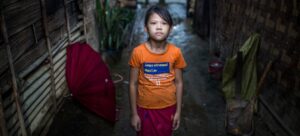
Thomas Andrews said he was “outraged and devastated” following what’s believed to be the first use of capital punishment in the Southeast Asian nation in decades.
The four – including activist Ko Jimmy and lawmaker Phyo Zeya Thaw – were convicted of helping to carry out alleged “terror acts”.
“This cruel and regressive step is an extension of the military’s ongoing repressive campaign against its own people”, said High Commissioner Bachelet.
“These executions – the first in Myanmar in decades – are cruel violations of the rights to life, liberty and security of a person, and fair trial guarantees. For the military to widen its killing will only deepen its entanglement in the crisis it has itself created.”
Ms. Bachelet called for the immediate release of all political prisoners and others arbitrarily detained, and urged the country to reinstate its de-facto moratorium on the use of the death penalty.
Sentenced to death in closed-door trials in January and April, the four men had been accused of helping insurgents to fight the army that seized power in a coup on February 1 last year, and unleashed a bloody crackdown which has resulted in multiple rights abuses.
Violations of international law
The executions were carried out despite worldwide pleas for clemency for the four men, including from UN experts and Cambodia, which holds the rotating chairmanship of the Association of Southeast Asian Nations (ASEAN).
Mr Andrews condemned the decision to go ahead with the executions when they were announced in June. In a statement he said the men were “tried, convicted and sentenced…without the right of appeal and reportedly without legal counsel, in violation of international human rights law.”
He called for “strong action” from UN Member States against the “widespread and systematic murders of protesters, indiscriminate attacks against entire villages and now the execution of opposition leaders.”
“The status quo of international inaction must be firmly rejected,” he added.
In June, UN Secretary-General António Guterres also called for charges to be dropped “against those arrested on charges related to the exercise of their fundamental freedoms and rights, and for the immediate release of all political prisoners in Myanmar”.
UN Special Rapporteurs such are tasked with specific thematic or country mandates by the Geneva-based Human Rights Council, where they report back on their fact-finding or monitoring missions, usually at one of the forum’s three regular sessions a year. The expert positions within the Council’s Special Procedures section are honorary and incumbents are not paid for their work.
Prominent activists
Among those executed was Phyo Zeya Thaw, a former lawmaker from ousted leader Aung San Suu Kyi’s National League for Democracy party. Also known as Maung Kyaw, he was convicted in January by a closed military court of offences involving possession of explosives, bombings and financing terrorism.
Phyo Zeya Thaw was arrested last November based on information from people detained for shooting security personnel, state media said at the time. He was also accused of being a key figure in a network that carried out what the military described as terrorist attacks in Yangon, the country’s biggest city.
Also executed was democracy activist Kyaw Min Yu, better known as Ko Jimmy, for violating the counterterrorism law. He was one of the leaders of the 88 Generation Students Group, veterans of a failed 1988 popular uprising against military rule.
He already had spent more than a dozen years behind bars for political activism before his arrest in Yangon last October. He had been put on a wanted list for social media postings that allegedly incited unrest, and state media said he was accused of terrorist acts including mine attacks and of heading a group called Moon Light Operation to carry out urban guerrilla attacks.
The other two, Hla Myo Aung and Aung Thura Zaw, were convicted of torturing and killing a woman in March 2021 who they allegedly believed was a military informer.
First execution since 1976
The last judicial execution to be carried out in Myanmar is generally believed to have been of another pro-democracy activist, student leader Salai Tin Maung Oo, in 1976 under a previous military government led by dictator Ne Win.
In 2014, during the period of democratic reform, the sentences of prisoners on death row were commuted to life imprisonment, but several dozen convicts received death sentences between then and last year’s takeover.
First Person: I go to sleep and wake up to the sound of gunfire
“Since July 8th, there has been an intensification of violence in Cité Solei and especially in the area which I live in, which is called Brooklyn. There is heavy fighting in the streets and everyone is very stressed. We cannot leave our homes most of the time and there is no traffic coming in and out of the neighbourhood.
This causes a lot of problems especially the lack of food and water. I am sometimes able to share food with neighbours, but many people are going hungry. The small amount of drinking water that is available has tripled in price.
We have a greeting in our language, Creole, when someone leaves home, we tell them to be “pridan” or careful, but this expression has lost its meaning now because our life is so dangerous. You think you are safe at home but bullets know every pathway and back alley in our neighbourhood.
Cycle of fear, stress and despair
If a friend or family member manages to leave the Cité Soleil, we begin to worry that they have been killed if we don’t hear from them during the day. This adds even more worry to our already traumatic life.
I go to bed and wake up to the sound of gunfire which is very stressful, but, even if the shooting terrifies me, I try and use the rhythmic sound of bullets being fired to lull me to sleep; this is the only way I can survive through this difficult period. Sometimes, you can use music to escape the constant shooting noise, but not when shots are being fired so close to your house; it’s just too loud.
My life now is a cycle of fear, stress and despair. I’m always experiencing at least one of these feelings and I just want them to stop, so I can get back to normality.
Battling for a simple but normal life
Despite this, I do have some hope and remain positive most of the time. The work I’m doing with my youth group Comite Consultatif des Jeunes is helping me to get through this difficult period.
The group organizes activities bringing young people from Cité Soleil, and two other neighbourhoods, Saint-Martin and Bel-Air, which are controlled by rival gangs. We bring hundreds of children together to enjoy sports, music or to play board games like chess.
We are working with young women and men to build friendships and support-networks across the broader community. In a way, as the fighting continues around us, we are battling for a simple but normal life, where you can walk the streets with friends, find a job or start a small business. Of course, it has not been possible to carry out any of these activities over the last two weeks.
Hear our voices
I am committed to working with young people to improve their lives and I see myself as a leader. Being part of the committee gives me confidence and helps to empower me and the other nine members.
We want our voices to be heard outside Cité Soleil, because if no-one hears us nothing will change. If people living in the rest of Port-au-Prince or indeed anywhere in the world hear us, then we can’t be forgotten, and we can work together to change our lives for the better.
*Not his real name
Seeds of peace
- The Comite Consultatif des Jeunes is part of a programme called Semans Lapè (seeds of peace) which is managed by the non-governmental organization, Concern Worldwide.
- It is funded by the UN Peacebuilding Fund in line with the UN’s youth, peace and security agenda which calls for the full participation of young people in issues of peace and security in their communities.
Women working together, to survive Lebanon’s economic crisis
Al Atayeb (The Delicacies), a Lebanese women-led cooperative based in Kfardebian town, north of Beirut, specializes in producing Lebanese local and traditional food, such as citrus marmalade, fruit jam, fruit paste, and the famous Lebanese Makdous (Pickled eggplants in oil).
The 13 women who make up the cooperative each receive a share of the profits, as well as a salary, earned from their work preparing and processing the food. The local farmers who sell their crops also benefit.
‘My way of empowering women’
“Teaching food processing skills was my way of empowering women”, says Samira Zoughaib Akiki, the chairperson of Al Atayeb. It also empowered me, given that I was surrounded by generous women with a vision”.
Ms. Akiki started out in the food industry around two decades ago, running food processing workshops and training sessions for women. This experience led her and her colleagues to form Al Atayeb as a cooperative, create job opportunities, and ensure that all members would share in the success of the enterprise.
When Lebanon’s economic crisis was compounded by the COVID-19 pandemic, Ms. Akiki learned that UN Lebanon was providing essential support to cooperatives such as Al Atayeb.
“The UN provided monthly salaries for women to sustain their income, the oil and sugar we use to produce our food, and the jars necessary for preserving produce,” says Ms. Akiki. “This addressed our financial needs, replenishing our capital and compensated our losses: we were able to resume our activities at a time when many businesses were shutting down”.
In all, UN Lebanon has supported 94 cooperatives from different villages in Lebanon such as Deir Al Ahmar, Fneidek, Qana, Harissa, and Lehfed, with a focus on women. This support has been in the form of cash for work and in-kind support such as raw materials, equipment, and tools. At least 6,000 individuals have benefited from the $4.4 million project, funded by the German Development Bank KfW, through the UN Development Programme.
Al Atayeb cooperative has been a key factor in helping many families in Kfardebian survive the crises, making women proud of themselves and their community. “Our cooperative represents the values we believe in”, continues Ms. Akiki proudly. “We work with passion. We help our community and serve the public good“.
Monkeypox declared a global health emergency by the World Health Organization
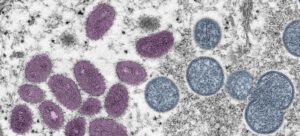
“For all of these reasons, I have decided that the global monkeypox outbreak represents a public health emergency of international concern”, the World Health Organization’s Director, Tedros Adhanom Gebreyesus, announced on Saturday during a press conference.
Tedros indicated that the current risk of Monkeypox is moderate globally and in all regions, except in the European region where the risk is high.
“There is also a clear risk of further international spread, although the risk of interference with international traffic remains low for the moment”, he added.
Currently, there are more than 16,000 reported cases from 75 countries and territories and five deaths.
The outbreak can be stopped
WHO’s chief said that although he was declaring a public health emergency of international concern, for the moment the Monkeypox outbreak is concentrated among men who have sex with men, especially those with multiple sexual partners.
“That means that this is an outbreak that can be stopped with the right strategies in the right groups”, he explained.
Tedros said that it is essential that all countries work closely with communities of men who have sex with men, to design and deliver effective information and services, and to adopt measures that protect the health, human rights and dignity of affected communities.
“Stigma and discrimination can be as dangerous as any virus”, he warned, calling on civil society organisations, including those with experience in working with people living with HIV, to work with the agency on fighting stigma and discrimination.
“With the tools we have right now, we can stop transmission and bring this outbreak under control”, he highlighted.
Undecided committee
Tedros clarified that the Emergency Committee under the International Health Regulations, convened last Thursday, could not reach a consensus about Monkeypox.
He explained that WHO has to consider five elements to decide whether an outbreak constitutes a public health emergency of international concern.
- Information provided by countries – which in this case shows that the virus has spread rapidly to many countries that have not seen it before;
- The three criteria for declaring a public health emergency of international concern under the International Health Regulations— being an extraordinary event, a public health risk to other States and a potential need to require a coordinated international response;
- The advice of the Emergency Committee, which did not reach a consensus;
- Scientific principles, evidence and other relevant information – which according to Tedros are currently insufficient and leave them with many unknowns;
- The risk to human health, international spread, and the potential for interference with international traffic.
Commitee member’s in support of declaring the emergency expressed that future waves of Monkeypox cases are expected as the virus will be introduced in additional susceptible populations, and that the current magnitude of the outbreak might be underestimated.
They also cited the “moral duty” to deploy all means and tools available to respond to the outbreak, as highlighted by leaders of the LGBTI+ communities from several countries, bearing in mind that the community currently most affected outside Africa is the same initially reported to be affected in the early stages of HIV/AIDS pandemic.
The experts underscored that the modes of transmission sustaining the current outbreak are still not fully understood.
Recommendations
In order to fight the Monkeypox outbreak WHO recommends countries to:
- Implement a coordinated response to stop transmission and protect vulnerable groups
- Engage and protect affected communities
- Intensify surveillance and public health measures
- Strengthen clinical management and infection prevention and control in hospitals and clinics
- Accelerate research into the use of vaccines, therapeutics and other tools
A full set of recommendations adapted to different country contexts is published on WHO’s website, and the agency has also launched a live data dashboard for the monkeypox outbreak.
WHO now has three active public health emergencies of international concern: COVID-19, polio and Monkeypox.
Guterres condemns missile strikes in Ukranian Black Sea port of Odesa
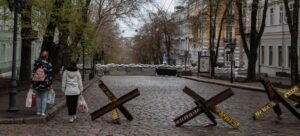
“Yesterday, all parties made clear commitments on the global stage to ensure the safe movement of Ukrainian grain and related products to global markets. These products are desperately needed to address the global food crisis and ease the suffering of millions of people in need around the globe. Full implementation by the Russian Federation, Ukraine and Turkey is imperative”, António Guterres said in a statement published by his spokesperson.
In Instabul, Russian and Ukrainian Ministers signed on Friday the Black Sea Grain Initiative to resume Ukranian grain exports via the Black Sea amid the ongoing war. The agreement is meant to secure the transit of millions of tons of grain.
The Russian invasion, which began on 24 February, has sparked record food and fuel prices, as well as supply chain issues, with mountains of grain stocks stuck in silos.
According to media reports, at least six explosions were heard in Odesa on Saturday morning, and so far is unclear what the strikes were targeting and whether any grain infraestructure was hit.
Strengthening Sudan’s fragile peace: A Resident Coordinator Blog
“The military coup of 25 October 2021 plunged Sudan into a political crisis with profound implications for the country’s development and peacebuilding prospects.
It also presented donors with a difficult question: how do we uphold our commitment to supporting Sudan’s most vulnerable without legitimizing an unconstitutional change?
While political crises clearly present challenges for international donors, the UN Secretary-General’s Peacebuilding Fund (PBF) is working to respond to such crises in a targeted and strategic way to ensure that essential support continues to reach those who need it most.
Peacebuilding projects expand
Against a backdrop of political tensions, inter-communal conflicts, large-scale displacement, economic crises, deepening inequalities, rising unemployment, devastating floods and popular protests for democratic reforms, the PBF has remained active in Sudan.
The PBF has the advantage of being an agile, adaptable and demand driven fund, enabling it to provide desperately needed funding even in high-risk environments like Sudan. Since the coup, the PBF’s active portfolio and project pipeline has grown to cover twelve states, demonstrating that when crises strike, its commitment does not falter – it strengthens.
Alongside other projects – including its flagship programme which works to strengthen the rule of law and support local peacebuilding across the five Darfur states – the PBF added six new projects to the portfolio in 2021, with four more in the pipeline.
These pipeline projects include a new initiative in the disputed territory of Abyei and a USD 10 million investment in East Sudan, both of which adopt an area-based approach to stabilizing conflict-affected communities and enhancing their resilience to future crisis.
Based on an assessment of conflict hotspots and key conflict drivers for each area, the projects leverage the expertise of four UN agencies – UNICEF, UNDP, IOM and FAO to help restore access to basic services, including water and sanitation, roll out livelihoods support and job creation schemes, and strengthen community-level conflict resolution and natural resource management bodies.
Empowering local communities
So how do we navigate the complex political landscape to ensure support reaches those who need it most?
Part of the answer lies in the PBF’s community-based approach, which empowers local communities, promotes inclusive participation and strengthens the capacities of local governance and other community structures. In addition, this approach helps to improve relationships between different actors; fosters local ownership; directs funding to community-based organizations by expanding partnerships with CSOs; and foregrounds women and youth as agents of peaceful change and inclusive development.
With Sudan’s peacebuilding trajectory remaining fragile and uncertain, support from the international community – at the right time and in a targeted way – is critical. The question, then, is not whether development and peacebuilding partners should remain engaged, but how to remain engaged. Through its investments, the PBF is empowering local stakeholders to respond to the rapidly evolving situation on the ground in Sudan and ensuring relevant and reliable support to those who need it most”.
The UN Resident Coordinator
- The UN Resident Coordinator, sometimes called the RC, is the highest-ranking representative of the UN development system at the country level.
- In this occasional series, UN News is inviting RCs to blog on issues important to the United Nations and the country where they serve.
- This blog was written by Elizabeth Spehar, Assistant Secretary-General for Peacebuilding Support and Khardiata Lo Ndiaye, Deputy Special Representative of the Secretary-General, Resident and Humanitarian Coordinator in Sudan.
- Learn more about the UN Peacebuilding Fund and the work of the UN in Sudan.
WHO updates COVID-19 strategy in bid to vaccinate all health workers, those most at risk
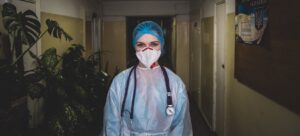
The plan prioritizes vaccinating 100 per cent of healthcare workers and vulnerable groups, including older persons and those with underlying conditions, in line with efforts to vaccinate 70 per cent of the global population.
More than 12 billion COVID-19 vaccine doses have been administered worldwide to date, resulting in countries reaching 60 per cent of their populations on average.
Yet only 28 per cent of older people and 37 per cent of healthcare workers in low-income countries, have received their primary course of vaccines, and most have not had booster doses.
Wide-ranging benefits
“Even where 70% vaccination coverage is achieved, if significant numbers of health workers, older people and other at-risk groups remain unvaccinated, deaths will continue, health systems will remain under pressure and the global recovery will be at risk,” said Tedros Adhanom Ghebreyesus, the WHO Director-General.
“Vaccinating all those most at risk is the single best way to save lives, protect health systems and keep societies and economies open.”
The updated strategy focuses on the need to measure progress in vaccinating these priority groups, and developing targeted approaches to reach them, which also includes gaining greater access to more displaced people through humanitarian response.
Invest and upgrade
Accelerating development of improved vaccines, and ensuring equitable access to substantially reduce virus transmission, is a top priority.
While current vaccines were designed to prevent serious illness and death, and have saved millions of lives, they have not substantially reduced transmission, WHO said.
With the coronavirus still circulating widely, and new and dangerous variants emerging, the UN agency stressed that it is fundamental to continue investing in research and development towards more effective and easier ways to administer vaccines, such as via nasal spray products.
WHO also called for other vital actions, such as equitably distributing vaccine manufacturing facilities across regions, and underlined its commitment to continue collaborating with the international COVAX vaccine solidarity initiative and other partners, to support countries with rollouts.
Mega-drought, glacier melt, and deforestation plague Latin America and the Caribbean

In its State of the Climate in Latin America and the Caribbean 2021, the World Meteorological Organization (WMO) highlights the far-reaching repercussions for ecosystems, food and water security, human health and poverty.
“The report shows that hydrometeorological hazards, including droughts, heatwaves, cold waves, tropical cyclones and floods, have unfortunately led to the loss of hundreds of lives, severe damages to crop production and infrastructure and human displacement,” said WMO Secretary-General Petteri Taalas.
Worsening climate change…[has] stalled decades of progress – ECLAC
Glacier retreat
Climate change is threatening vital systems in the region, which are already approaching critical conditions, potentially causing irreversible damage.
The report revealed that since the 1980s, glaciers in the tropical Andes have lost 30 per cent or more of their area – with a negative mass balance trend during the 1990-2020 monitoring period.
In Peru, some have lost more than 50 per cent of their area.
Glacier retreat and corresponding ice-mass loss increases the risk of water scarcity for people in the Andes, and its ecosystems.
“For many Andean cities, melting glaciers represent the loss of a significant source of freshwater currently used for domestic use, irrigation, and hydroelectric power,” said the WMO chief.
Deforestation and dangerous rain
According to the report, deforestation in the Brazilian Amazon rainforest doubled from the 2009‑2018 average and reached its highest level since 2009.
Some 22 per cent more forest area was lost last year, compared to the previous one – a blow for both the environment and climate change mitigation.
“In South America, the continued degradation of the Amazon rainforest is still being highlighted as a major concern for the region but also for global climate, considering the role of the forest in the carbon cycle,” said the top WMO official.
Meanwhile, record-breaking rainfall last year triggered floods and landslides that caused hundreds of fatalities, left tens of thousands of homes destroyed or damaged, and hundreds of thousands of people displaced.
Floods and landslides in the Brazilian states of Bahia and Minas Gerais alone led to an estimated loss of $ 3.1 billion.
Sea level rise
Regional sea levels rose at a faster rate than elsewhere in the world, notably along the Atlantic coast of South America south of the equator, and the subtropical North Atlantic and the Gulf of Mexico.
The rising sea contaminates freshwater aquifers, erodes shorelines, inundates low-lying areas, and increases the risks of storm surges, threatening coastal populations.
“Increasing sea-level rise and ocean warming are expected to continue to affect coastal livelihoods, tourism, health, food, energy, and water security, particularly in small islands and Central American countries,” Mr. Taalas warned.
Drought
In South America overall, drought conditions led to a 2.6 per cent decline during the 2020-2021 cereal harvest compared with the previous season, the report said.
And the so-called Central Chile Mega Drought, which has continued for 13 years, is the longest drought in the region in a thousand years.
Additionally, a multi-year drought in the Parana-La Plata Basin, the worst since 1944, is affecting central-southern Brazil and parts of Paraguay and Bolivia.
The agricultural damage it has caused, such as by reducing soybean and corn production, has affect global crop markets.
Progress against poverty stalled
“Worsening climate change…have not only impacted the biodiversity of the region, but have also stalled decades of progress against poverty, food insecurity and the reduction of inequality in the region,” said Mario Cimoli of Economic Commission for Latin America and the Caribbean (ECLAC).
The report, which outlines how extreme weather will continue to adversely affect human health and natural ecosystems, can inform climate policy and decision-making.
“No matter how it is taken, action must be informed by science,” he underscored.












